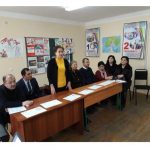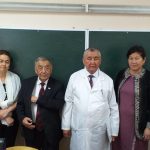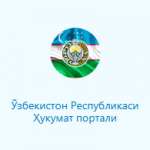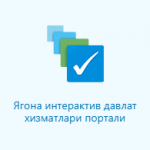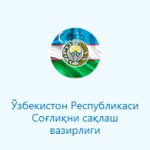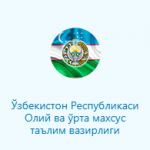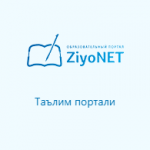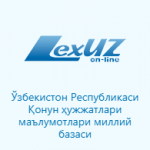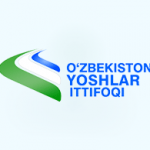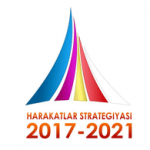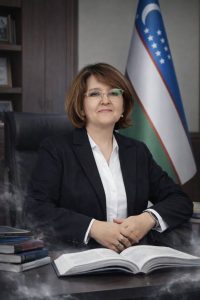
Добро пожаловать на новый сайт нашего отдела!
Надеемся, что ваш визит будет для вас полезен.
С уважением, доктор Матназарова Гульбахор Султановна.
У нашего факультета своя история! В период с 1920 по 1935 год эпидемиология преподавалась как курс эпидемиологии на факультетах микробиологии и инфекционных заболеваний.
Отделение независимой эпидемиологии в Узбекистане было основано в 1935 году в Ташкентском государственном медицинском институте им. Георгиевского (1935-1952). С момента его основания им руководил ряд ученых, таких как профессор Л. И. Мацина (1952-1954), профессор М. Н. Сошникова (1954-1972), профессор М. К. Усманов (1972-1993), профессор О. М. Миртазаев (1993-2010), доцент С. Е. Умиров (временный руководитель) (2011-2012).
На сегодняшний день кафедра защитила 7 докторских и более 20 магистерских диссертаций.
На кафедре работают 12 профессоров и преподавателей. В их число входят 2 профессора, 3 доцента, 4 старших преподавателя, 2 ассистента и 1 аспирант. В настоящее время научный потенциал кафедры составляет 50%.
С 2013 года кафедру эпидемиологии возглавляет д-р Матназарова Гульбахор Султановна. Преподавательский состав постоянно повышает свой интеллектуальный уровень и проводит научно-исследовательскую работу.
На кафедре эпидемиологии обучаются студенты 4-5 курсов медицинской профилактики, 5 курсов лечения, медицинского педагогического факультета, 1-2 курса факультета ХКН. С 2010 года на кафедре действует магистерская программа по эпидемиологии. Ежегодно 5-6 студентов заканчивают магистратуру. Директором кафедры является профессор Миртазаев А.М., ведущий специалист в области эпидемиологии, который привлекает студентов, интересующихся специальностью, обладающих научными навыками и педагогической деятельностью.
С 2014 года в отделении открыта программа клинической интернатуры. Ежегодно 2-3 студента заканчивают ординатуру.
Кафедра расположена на 3-м этаже второго корпуса ТМА. На кафедре имеются лекционные залы, практические аудитории и музейные помещения. Лекционный зал оборудован мультимедийными компьютерами, позволяющими использовать новейшие технологии. Лекции читают профессора и доценты, и их содержание ежегодно обновляется с учетом достижений техники и науки в контексте современного развития.
Практические занятия проводятся с использованием единой методической системы, включающей современные интерактивные методы обучения, что приводит к активному участию студентов в занятиях. В основном используются следующие методики: «кейс-стадия», «мозговой штурм», «конференция», «SWOT-анализ» и другие. Практика включает групповую работу с ключевыми студентами для активного участия в ней, наличие персонального компьютера, использование интернета для доступа к новой информации по рассматриваемым вопросам, использование специальностей в качестве источника для своих занятий и изучение английского языка. Каждое занятие завершается самостоятельным тестированием по темам, которые обсуждаются и подводятся итоги в группе. Перед завершением и проверкой студента оценивается уровень знания проблемы, уровень практических навыков, умение применять результаты в клинике, а также активное и самостоятельное участие в занятиях.
Количество (последовательность) промежуточных проверок зависит от количества выделенных часов обучения.
Итоговая проверка состоит из 2 частей: студенты кафедры сдают экзамен OSE.
и испытательный центр TTA
Сотрудники отдела постоянно совершенствуют свои педагогические навыки в центрах повышения квалификации, которые открываются каждые 3-5 лет, и обогащают свои знания в области интернета и современной литературы.



